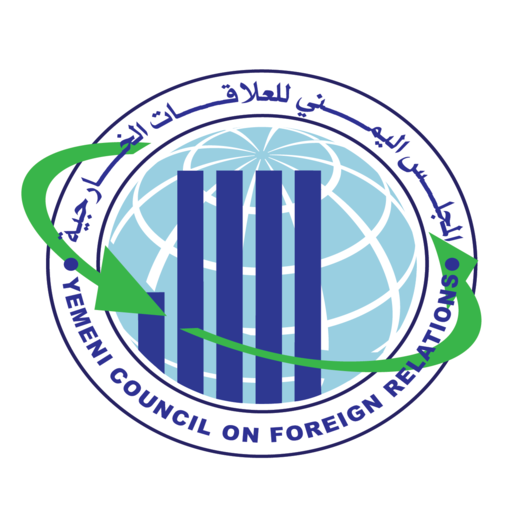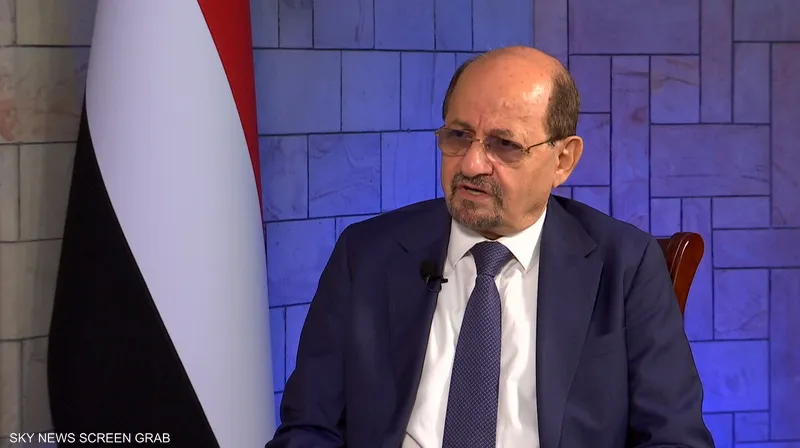Yemen’s Foreign Minister, Shai’ Muhsin Al-Zindani, in a special interview with Sky News Arabia, reiterated the government’s commitment to finding a political solution. However, he warned that the military option remains on the table if the Houthis continue to resist efforts to reach a peaceful resolution.
The minister, Al-Zindani, mentioned an agreement between the Yemeni government and the Houthis to hold a series of meetings aimed at prisoner exchange in Jordan. But he claimed that the Houthi militia has repeatedly backed out of these meetings at the last minute.
He described the American involvement in Yemen as a continuation of past efforts, working alongside UN initiatives to find a solution to the conflict. He emphasized the importance of reviewing and evaluating the factors that contributed to the crisis in Yemen when considering any future peace process.
Al-Zindani argued that the Houthi takeover of power was an ideologically driven coup, aimed at excluding all other Yemeni forces. This move was fueled by their belief in a divine right to rule, coupled with external support from foreign powers.
The Yemeni government, represented by the Presidential Leadership Council and its chairman Dr. Rashad Al-Alimi, is committed to peace, prioritizing the interests of the Yemeni people who are burdened by an unjustified war.
He asserted that the Houthis lack the political will and sincere intention to renounce violence, end the war, and engage in a peace process that prioritizes the interests of the Yemeni people.
Regarding the future of Yemen’s political system, Al-Zindani noted that it’s premature to discuss this topic at present, as the Yemeni government has yet to receive the US envoy’s proposed roadmap.
Road Map
Al-Zindani acknowledged the substantial efforts invested in developing a roadmap for peace, thanks to persistent endeavors by Saudi Arabia and Oman. However, he explained that the implementation of this roadmap has been halted and all related activities suspended due to escalating events in the Red Sea.
He emphasized that achieving peace is a core objective for the Yemeni government, which will work diligently with the international community to achieve a comprehensive solution to the Yemen crisis.
The Foreign Minister also downplayed the Houthis’ military capabilities, describing the perception of their strength as exaggerated.
He also stressed that the Yemeni government is committed to working to restore state authority in areas controlled by the Houthis. No party within the legitimate government will accept the Houthis’ reality or tolerate them, or allow them to continue their efforts related to the coup. There may be disagreements and differences, but there is still a common consensus on the one goal by the Presidential Leadership Council.
He noted that the Palestinian cause remains steadfast and non-negotiable in all circumstances, especially when talking about the Yemeni people who instinctively stand with the Palestinian cause and consider it their central cause.
Yemenis have been harmed by Houthi attacks in the Red Sea
He explained that Yemeni citizens have been directly affected by these actions carried out by the Houthis in the Red Sea. Moreover, this situation has also affected many allied countries, especially Egypt, as about 50% of the ships passing through the Suez Canal have been obstructed.
He asserted that there is no legitimate or illegitimate government. Rather, there is one government in Yemen, which is the government recognized by the international community.
The Yemeni government recognizes the importance of international legitimacy and adheres to the decisions of the UN Security Council, at the forefront of which is Resolution 2216 issued under Chapter VII. This resolution is based on the fact that there is a threat to international peace and security.
Yemen and Iran
The minister explained that Iran’s policy reflects the policies of the ruling regime in Iran, and is not dependent on specific individuals. Therefore, the death of Iranian President Ibrahim Raisi will not affect Iran’s fixed strategy, which primarily focuses on regional expansion.
Opening channels of communication with the Iranian side to address the crisis is considered a natural step in the future, especially in light of the policies and diplomacy adopted.
It cannot be said that the international community is ignoring Yemen’s situation, as the country is receiving humanitarian aid from international organizations. However, this humanitarian aid does not match the scale of the tragedy that the Yemeni people are actually living through.
The Houthi group is operating outside the framework of the Yemeni government and is carrying out acts aimed at secession and division. Therefore, the Southern Transitional Council is an integral part of the Yemeni (Shari’ya) authority.

